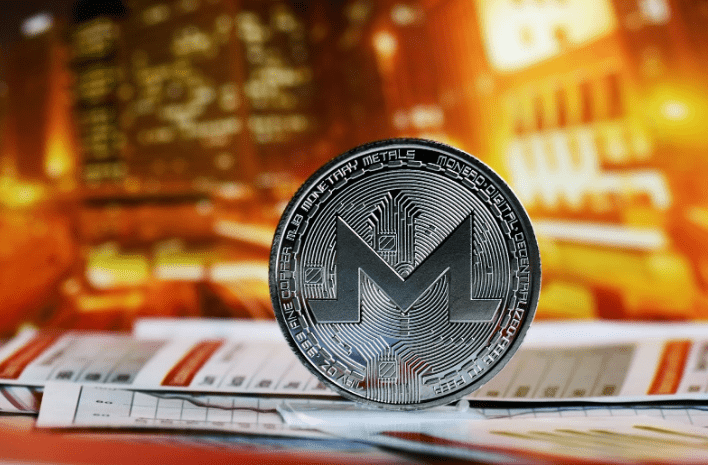The world of cryptocurrencies has witnessed rapid growth and innovation over the past decade. While Bitcoin (BTC) remains the most prominent and widely used cryptocurrency, concerns about privacy and transaction traceability have grown in parallel. Enter Monero (XMR), a privacy-focused cryptocurrency that is rapidly gaining popularity for its untraceable and fungible nature. In this article, we will explore the Bitcoin to Monero gateway, a solution that allows users to transition from the transparent world of Bitcoin to the private realm of Monero. We will delve into the technical aspects, security considerations, and implications of this gateway. Moreover, those keen to delve deeper into the world of cryptocurrency trading and transactions may find it worthwhile to explore the advantages offered by AgaveCoin, a reputable online trading platform.
Bitcoin and Monero: A Brief Overview
Bitcoin: The Pioneer of Cryptocurrency
Bitcoin, often referred to as digital gold, introduced the world to the concept of decentralized digital currencies. It operates on a transparent ledger, the blockchain, which records all transactions. While this transparency provides security, it lacks privacy. Bitcoin addresses are pseudonymous, meaning they don’t reveal the user’s identity but are still traceable.
Monero: The King of Privacy Coins
Monero, on the other hand, is designed with privacy as its core feature. It employs technologies like Ring Signatures and Stealth Addresses to obfuscate transaction details, making it virtually impossible to trace the sender, receiver, or transaction amount. Monero is often touted as the king of privacy coins due to its strong privacy features and fungibility.
The Bitcoin to Monero Gateway: Understanding the Basics
What Is a Cryptocurrency Gateway?
A cryptocurrency gateway is a bridge that facilitates the conversion of one cryptocurrency into another. In the context of Bitcoin to Monero, it allows users to exchange their BTC for XMR. This process is essential for those who prioritize privacy and wish to transition from a transparent blockchain to a private one.
The Need for a Secure Gateway
Privacy-conscious individuals and entities are increasingly seeking ways to protect their financial transactions from prying eyes. The Bitcoin to Monero gateway addresses this need by enabling users to exchange Bitcoin for Monero, enhancing transaction privacy.
How the Bitcoin to Monero Gateway Works
Conversion Process Explained
The conversion process typically involves using a cryptocurrency exchange or service that supports both Bitcoin and Monero. Users deposit their BTC into the exchange, which then facilitates the exchange for XMR at the current market rate. The Monero coins are sent to the user’s Monero wallet, ensuring the privacy of the transaction.
Role of Exchange Platforms
Selecting a reputable exchange platform is crucial for the security and privacy of this process. Users must choose exchanges that prioritize privacy and adhere to strict security protocols.
Privacy Challenges in Bitcoin Transactions
Analyzing the Transparency Issue
Bitcoin’s transparency has led to concerns about transaction traceability. Every Bitcoin transaction is recorded on the blockchain, and while the identities of users are pseudonymous, sophisticated analysis tools can often de-anonymize them.
Identifying the Vulnerabilities
Address Reuse and Linkability
One significant vulnerability in Bitcoin is address reuse. When a user receives BTC in the same address multiple times, it becomes easier to link transactions and identify the user’s financial history.
Chain Analysis and De-anonymization
Chain analysis companies have emerged to trace Bitcoin transactions, potentially revealing the flow of funds and user identities. The threat of de-anonymization is a growing concern for Bitcoin users seeking privacy.
Monero: The Privacy Solution
Monero’s Strong Privacy Features
Monero employs several cutting-edge technologies to ensure user privacy:
Ring Signatures
Ring signatures mix a user’s transaction with others, making it nearly impossible to determine the true sender.
Stealth Addresses
Stealth addresses generate unique, one-time addresses for each transaction, ensuring that the receiver’s address remains confidential.
Confidential Transactions
Monero uses confidential transactions to hide the transaction amount, adding another layer of privacy.
Fungibility: The Key to Untraceable Transactions
Monero’s fungibility is a vital aspect of its privacy. All Monero coins are equal and interchangeable, making it impossible to trace the origin of a particular coin. This fungibility ensures that Monero transactions are truly untraceable.
Implementing a Security-Centric Bitcoin to Monero Gateway
Privacy-Centric Exchanges and Services
Users looking to exchange Bitcoin for Monero should choose exchange platforms and services that prioritize privacy and security. Researching and selecting a reputable service is essential.
User Security Best Practices
To maximize security when using the Bitcoin to Monero gateway, users should follow these best practices:
Wallet Selection
Use a reputable and privacy-focused Monero wallet to store your XMR securely.
Transaction Timing
Consider timing your transactions strategically to minimize the risk of traceability.
Mixing and Churning Techniques
Advanced users can explore mixing and churning techniques to further enhance transaction privacy.
Regulatory and Ethical Considerations
Legal Implications of Privacy Coins
Privacy coins like Monero have faced regulatory scrutiny due to concerns about their potential use in illicit activities. Users must be aware of the legal implications in their jurisdictions.
Ethical Debate: Privacy vs. Transparency
The debate surrounding privacy coins extends to ethical considerations. While privacy is essential for personal security, it can also be misused for illegal activities. Striking a balance between privacy and transparency is an ongoing challenge.
Compliance Measures for Exchanges
Exchange platforms that support Monero should implement robust compliance measures to ensure they are not facilitating illicit activities. This includes Know Your Customer (KYC) and Anti-Money Laundering (AML) procedures.
The Future of Privacy in Cryptocurrency
Advancements in Privacy Technologies
The cryptocurrency space continues to evolve, with ongoing research and development in privacy-enhancing technologies. Future advancements may further improve privacy in cryptocurrency transactions.
The Growing Importance of Anonymity
As awareness of privacy concerns grows, more users are expected to seek privacy-centric solutions like Monero. The demand for privacy in the cryptocurrency space is likely to increase.
Potential Challenges and Solutions
The path to privacy in cryptocurrency is not without challenges. Regulatory pressures, security risks, and scalability issues are potential hurdles that must be addressed by the community.
Conclusion
In summary, the Bitcoin to Monero gateway stands as a robust means for users seeking heightened anonymity in their cryptocurrency transactions. By grasping the fundamental concepts, adopting sound privacy strategies, and addressing regulatory concerns, individuals can effectively harness this gateway to safeguard their financial privacy within the realm of digital currencies.








Add Comment